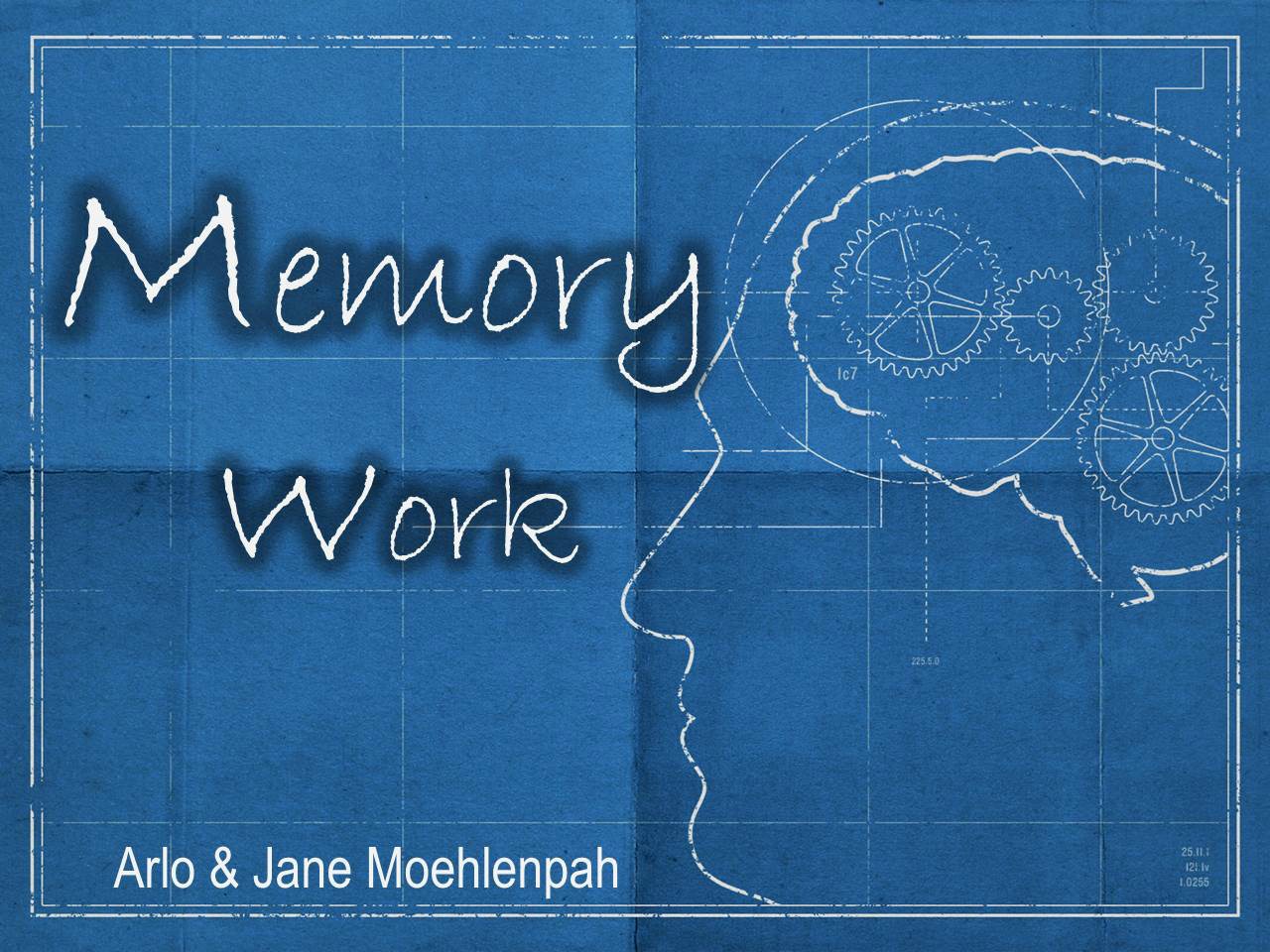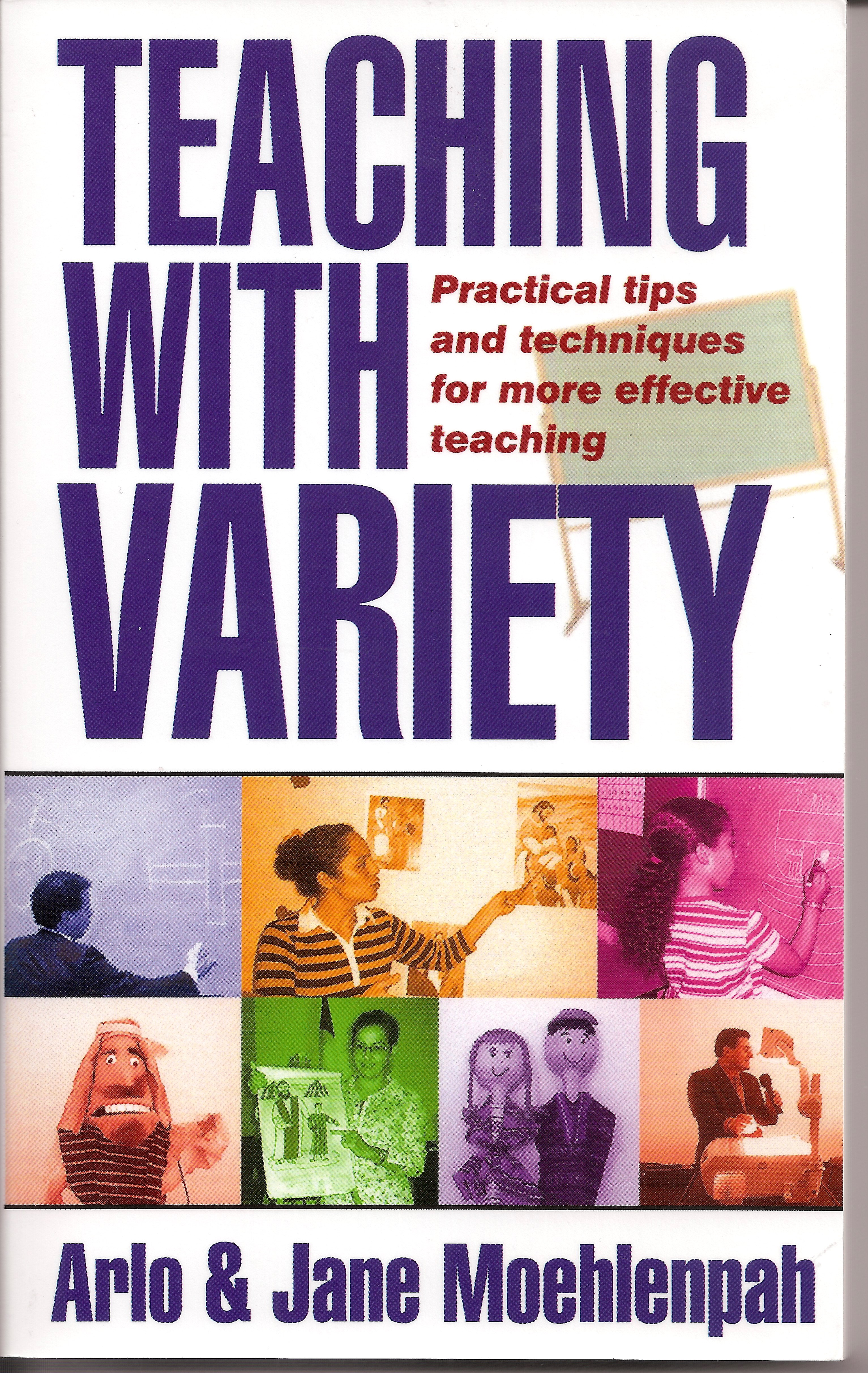
By Arlo & Jane Moehlenpah
There are a number of reasons why we should memorize God’s Word; the most compelling is that God commands us to put His Word in our hearts. Deuteronomy 6:6-7 says, “And these words, which I command thee this day, shall be in thine heart: and thou shalt teach them diligently unto thy children; and shalt talk of them when thou sittest in thine house, and when thou walkest by the way, and when thou liest down, and when thou risest up.”
Memory work can lead the unsaved to salvation. What we put into the mind influences behavior, so we must put good things in our minds and in the minds of the people we teach. One woman asked her unsaved husband to check verses as she quoted them. He became convinced that he had not been born again, and a few days later he sought the Lord. One Bible quizzer received the Holy Ghost after learning the passages of Scripture needed for his quizzes.
Memory work is a means of growth for the saved. If we read and memorize God’s Word, the Word will become a part of our daily life and thinking. As a humorous illustration, at the end of one quarter when I took an examination at the University of Missouri in St. Louis, the instructor asked, “How did you do?” The verse immediately came to my mind: “She hath done what she could.”
Memory work helps us resist temptation. David wrote, “Thy word have I hid in mine heart, that I might not sin against thee” (Psalm 119:11). Scripture that we have memorized will help us in the absence of the printed Word. Memory work is not just for the future. God’s Word helps us to live right now. It is a source of strength in difficult times. A number of prisoners of war have testified to the strength and encouragement the memorized Scriptures gave them.
The more we read and learn the Word of God, the more we will respect it, and our students need to learn this respect also. They should not think, Hath God said? but rather, God hath said. Our students need to love the Word of God, and we have to love the Word before we can help others love it. Memorized Scriptures also gives us confidence as we face doctrinal questions when we witness. Here are some techniques for teaching memory work.
- Choose the verse. Ask yourself, “How useful will this passage be to my students in future years?” If you have the opportunity, choose a verse that they will enjoy learning and that is appropriate to their age level. Some nursery or beginner class students are more comfortable with a portion of a verse that contains two to six words, while older students can learn longer passages.
- Define the verse. Defining the verse means explaining unfamiliar words. Many times a student can read the words of a passage for himself, but just a simple explanation by a teacher will open his understanding of it. If your students are old enough to understand and enjoy it, and if the time permits, you might discuss the background of the passage of Scripture, including the author, when and where it was written, the recipient (if it is a part of a letter), and the value it has for our lives today. You could also give the students an opportunity to say what they think the passage means.
A verbal or pictorial illustration can help students understand the meaning. Many times a student can quote a verse of Scripture but has no understanding of the words. Often he mistakes one word for another, as did the child who quoted, ‘And I shall duel in the house of the Lord forever.” Some illustrations are available through Christian bookstores, or you can develop your own illustrations by using your picture file or objects for key words.
- Present the verse. A passage of Scripture can be presented in a variety of ways by using puppets, the chalkboard, a flannelgraph, a pocket chart, a board-and-string game, Scripture choruses, or motion choruses.
- Involve the verse. You could ask the students to draw a picture to go with the verse. As each child shows his picture, the individual or the class can repeat the verse. You can use games such as Scrambled Verses to teach the verse. In this game the verses are written on stiff paper, cut apart, and scrambled. The students then try to arrange the words in the correct order.
You can add more activity for restless students by hiding the words around the room. When they are found the students arrange them in the correct order. You can also use a quieter version with flash cards. Each of these methods can also be used to review verses learned previously.
- Recite the verse. Not all drills have to be boring. Add some excitement to your memory time by taking a Nerf or Koosh ball to class. Toss it gently to a student. The catcher has to quote the verse of Scripture. He then has the privilege of tossing the ball to another person.
Another game is Bible Ping-Pong. Two or four people stand before the group and say the verse in order while tossing a ball. The first person says the first word of the verse, and each person after that catches the ball and says the next correct word of the verse. The game can be adapted for older students by ruling that instead of catching the ball, they must bat the ball with their hands (similar to a regular game of ping-pong) while saying the verse.
You can call for different groups to recite. Ask all the people with red hair or those who are wearing something red to quote the verse of Scripture. Designate those with blue eyes or those wearing tennis shoes or gray socks. You could also choose a special chair before class. If the student sitting in that chair can recite the verse correctly the first time, he or she receives a reward.
You could have all the names of the students in a box and draw a name. That student would then recite the verse.
- Reward the verse. Students will work harder to memorize if they are rewarded for memory work; they want their achievement recognized. This can be done with verbal praise that is given publicly and personally. “That was perfect” and “You did an excellent job” are words we all like to hear. Awards for achievement could include pencils, bookmarks, gum, stars on a chart, or medals made by covering mints with foil.
- Review. Games are good for review. You can use a piece of a metal shelf and magnetic tape from a hobby store to create verses word by word. The student has to put the scrambled words in order. It adds fun to have a timed race with someone else who is working another game. A board, nails, and string can be used to create a similar game. The words of the verse are placed in mixed-up order at different nails. With the string the student creates a correct path to show the order of the verse.
Bible turn-down can be played like a spelling bee, using the verses the students have learned during the month, the quarter, or the year. Musical review is a noisier form of review. It gives the students an opportunity to be active. If nearby classes would be affected by the noise from your class, you will have to forego this one. It is played like musical chairs using music from a tape recorder, CD player, or a piano. While the music plays the students march around a group of chairs (one less than the number of students), and when the music stops, the person left without a chair attempts to say the verse.
Hot potato involves passing an unbreakable object until the announcer calls a halt. The person holding the “potato” attempts to say the verse. Students can have an enjoyable time while they are learning verses of Scripture that will affect their lives for a long time.
This article “Memory Work” was excerpted from the book: Teaching With Variety by Arlo & Jane Moehlenpah. 1990. It may be used for study & research purposes only.




1 thought on “Memory Work (Entire Article)”
Comments are closed.